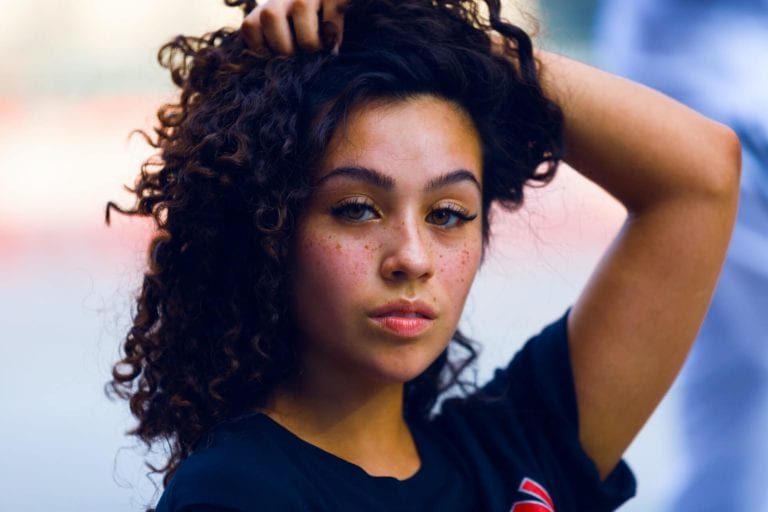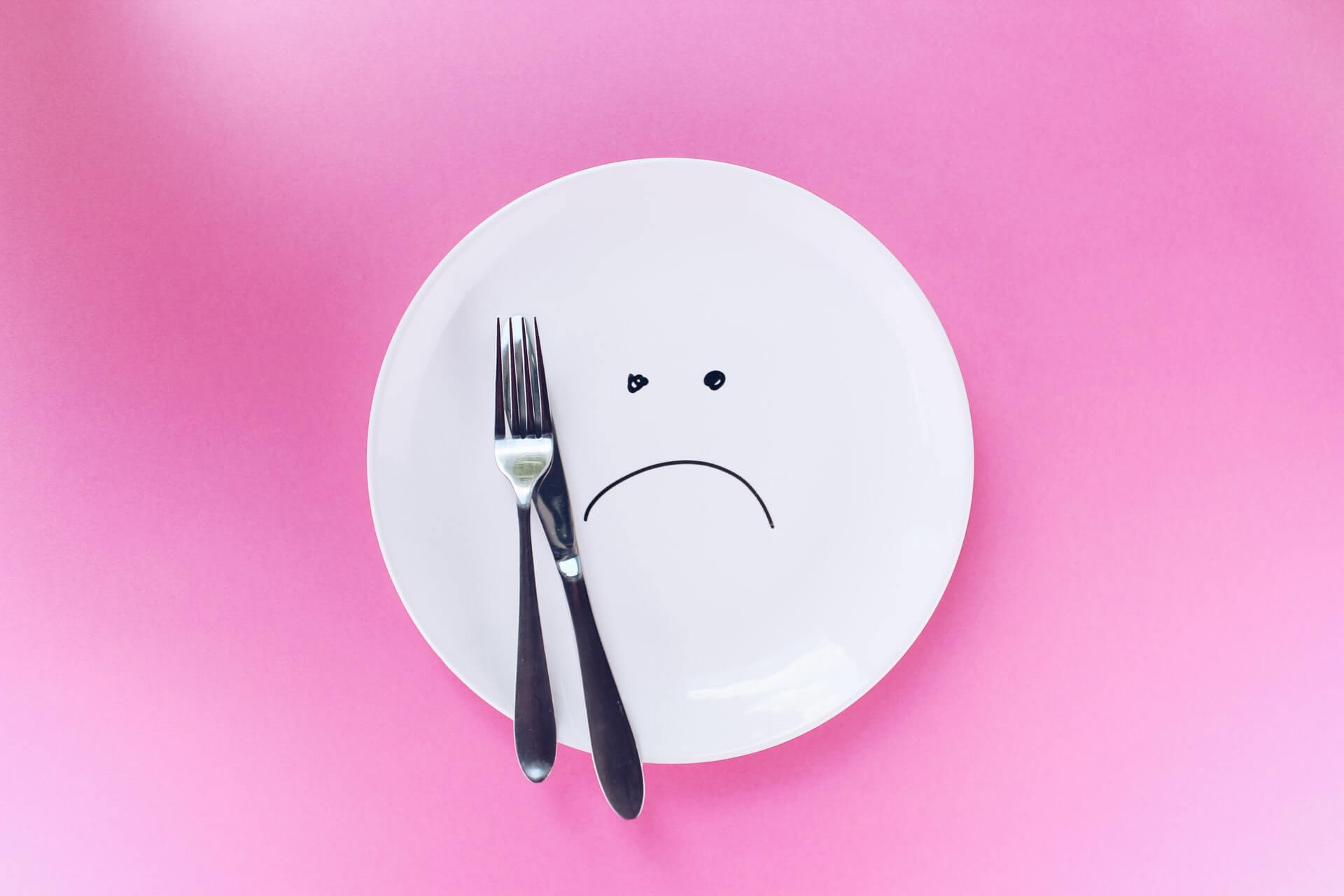Intermittent fasting is a diet with amazing health benefits. It can improve insulin sensitivity, help you manage or prevent type 2 diabetes, it is great for weight loss and so much more. But what about the skin? Does it affect it in any way? And can intermittent fasting cause acne?
The answer isn’t black and white. In general, intermittent fasting is great for the skin and you might even see it recommended as a cure for acne. That’s because it helps with some of the main acne triggers: unstable blood sugar and inflammation. However, some people experience a negative effect when they first start fasting and their acne gets worse. The explanation could lie behind a slight increase in cortisol, the stress hormone. Fasting may be perceived as stress by the body, so cortisol increases, and with it, hormonal imbalances start to happen, leading to acne. For most people though, this issue should resolve within a few weeks, after the body adjusts to the new lifestyle.
Sounds intriguing? Let’s take a deeper look at how intermittent fasting can help with acne, and when can it harm your skin.
Can intermittent fasting cause acne?
Intermittent fasting is usually considered a great diet for your skin. That’s because it works by reducing inflammation and insulin resistance. Both are known causes of hormonal imbalances, in men and especially in women.
For instance, women suffering from the polycystic ovarian syndrome, a condition that often comes with high testosterone, which can lead to cystic acne, often have both insulin resistance and inflammation. As you can imagine, any diet that helps reduces them has a good chance of reducing acne.
Diet in and of itself can cause acne. For instance, sugar and low-fat dairy have been linked to cystic acne. The problem with intermittent fasting is that it doesn’t recommend certain foods. If you eat according to the schedule, you’re on track with your diet. This can lead to some dietary imbalances and, especially during the first weeks of fasting, people may be tempted to overeat in their eating window. If the foods you binge on are acne triggers, the result won’t be pretty.
Of course, in the above example it isn’t the fasting itself that causes acne, but the poor diet. If the diet is correct, intermittent fasting shouldn’t cause acne.
Will intermittent fasting make acne worse?
Despite the evidence that says fasting is beneficial for the skin, we cannot overlook those people who claim their acne got worse when they started intermittent fasting.
Assuming your diet is correct and you’re not binging on foods that are triggering your acne, the next possible cause is a rise in cortisol levels.
Cortisol is the stress hormone. It rises in, you guessed it, stressful situations. The problem comes from the fact that it rises just the same when the stressor is real – you’re running for your life in the jungle as a lion chases you – and when it perceived – you’re stuck in traffic, you have a deadline on a project at work or when you’re doing a fast. The perceived stress is real, but you’re not moving your body, so the cortisol just remains unused. As a result, it starts creating a bit of havoc in your body, creating hormonal imbalances.
Not everyone reacts the same way, which is why not everybody gets acne when they start fasting. But if you know you have a poor stress tolerance, you should expect the first few weeks might not look good on your skin. The good news is, in time, your body should adjust to the new lifestyle and you’ll start seeing the benefits.
Does intermittent fasting help skin?
“A couple of years ago I realized that my diet does more for my skin than any other thing.” -Liv Tyler
We’ve seen how intermittent fasting can cause acne, but how can it help it? After all, most studies claim fasting is beneficial for your skin!
We’ve already talked about insulin resistance and its role in acne. Intermittent fasting has been proven through numerous researchers to help increase insulin sensitivity, and through that, acne can be reduced. Don’t expect fast miracles though! It takes a while for hormonal changes to take place and even longer for them to be visible on your skin. So, if you’ve been fasting for a few weeks and aren’t seeing any results, don’t give up just yet.
The link between acne and inflammation has been proven for a long time. In short, picture this. You have a blocked pore that develops a minor acne infection. Despite the word ‘infection’, this is a harmless process and shouldn’t be visible. But then you add inflammation to the mix and an overactive immune system. This triggers an inflammatory response followed by redness, swelling, and pain – in other words, a pimple. Intermittent fasting helps by reducing inflammatory proteins from the body. As a result, your immune system should have normal reactions, and your acne should diminish in time.
Intermittent fasting also helps your skin by improving your sleep. You should know by now sleep and healthy skin go hand in hand. The saying “beauty sleep” exists for a reason! Poor or little sleep increases cortisol, causes inflammation, and even insulin resistance.
Luckily, intermittent fasting is one of the best diets when it comes to sleep quality. It promotes a healthy circadian rhythm, improves your energy levels during the day, helping you fall asleep faster at night. If you try and fast for a few hours before sleep, your body won’t need to use energy for digestion, which means you’ll sleep even better!
Benefits of intermittent fasting for your skin
Conditions intermittent fasting can help with
Skin that is easily wounded
Slow wound healing could be related to age, as our healing capacity decreases over time. It could also be linked to certain conditions or simply to sensitive skin.
A study published in 2019 proved the fact that intermittent fasting could speed up wound healing. The research was conducted on mice: they were divided into 2 groups, one that fasted, one that didn’t. Researchers made sure this was the only difference between the two groups. Before the study, they had been fed a similar diet and their wounds were healing in approximately the same amount of time. The results showed wound healing time decreased in the group that fasted.
Fine wrinkles and dull skin

Let’s face it. Nobody wants wrinkles. But they happen, for some quicker than others. While skincare and even genetics play an important role, so does diet.
What you eat and inflammation play an important role in how your skin looks. When you’re dehydrated, your skin will get fine wrinkles and lines faster. Fasting encourages a lot of water consumption, especially during the fast. On top of that, it reduces inflammation, which again helps slow down wrinkles.
Autophagy, a process that happens while you fast and promotes cell renewal, helps your skin look better overall, it gives you a healthy glow, so you can forget about dull skin.
Does intermittent fasting help eczema?
Fasting helps your skin look better and can diminish your acne. However, when it comes to eczema, opinions are more divided.
Eczema is a condition where rough, red, and often very itchy patches appear on the skin. It can happen all over the body, but most people have a few spots where they usually get it. The causes are not very well established. Some studies linked dairy consumption and eczema. Others say air pollution and chemicals may play an important role, while some say it can be triggered by stress.
Some doctors claim fasting for long periods can lead to nutritional imbalances that might trigger eczema. There’s also the issue of stress that we were talking about earlier. In some people, fasting raises cortisol, and that might trigger eczema. Of course, it all depends on person to person. If you know your trigger is stress, you may want to think twice about fasting. The same goes for those who are prone to nutritional imbalances, or who know they have a vitamin or mineral deficiency. If you do fast in these cases, make sure you are getting all the nutrients your body needs.
On the other hand, the improved insulin sensitivity, and the autophagy, along with the reduction of inflammation, may help manage eczema and reduce the number of flare-ups.
The bottom line
Can intermittent fasting cause acne? Yes and no. Yes, if you have a poor diet or binge on carbs and even dairy in your eating window. Acne could also be worsened if your body perceives fasting as a source of stress. That’s why, if you know you have a poor stress tolerance, you shouldn’t fast for long periods. You should also try and make stress management a priority. The good news is, the effects cortisol, the stress hormone, has on your body, should subside in a few weeks after you start intermittent fasting.
If you have a good tolerance to stress and a healthy diet, intermittent fasting should not cause acne. In fact, by decreasing inflammation, improving insulin sensitivity, and helping you sleep better, fasting might help clear your skin of acne. Other issues where fasting might help include wound healing, fine wrinkles, or dull skin.
Finally, those who suffer from eczema or psoriasis might want to think twice before fasting. It is believed that this diet could lead to certain nutritional imbalances that may trigger these conditions. On the other hand, some people claim that fasting helps them manage their eczema and they’ve had fewer flare-ups since starting this diet. So, if you suffer from either of them but still want to try and fast, be sure to talk to a doctor, or at least monitor your symptoms closely.



1 thought on “Can Intermittent Fasting Cause Acne?”